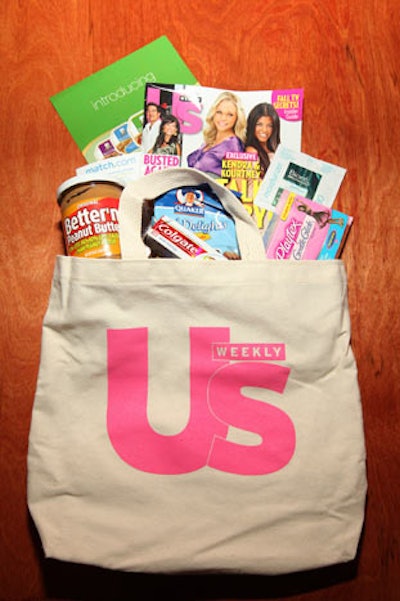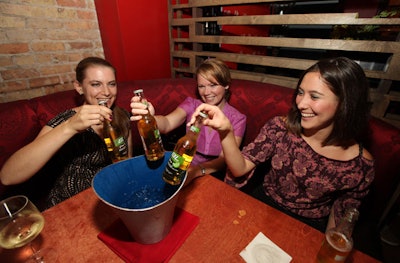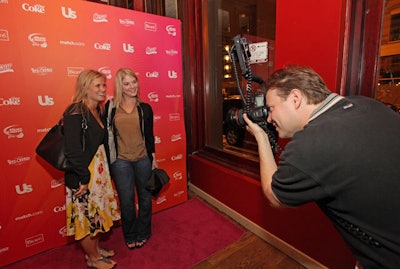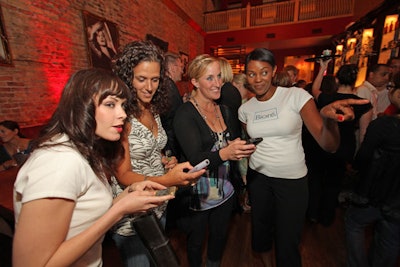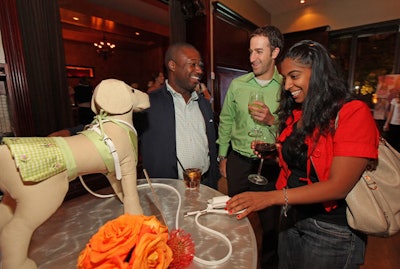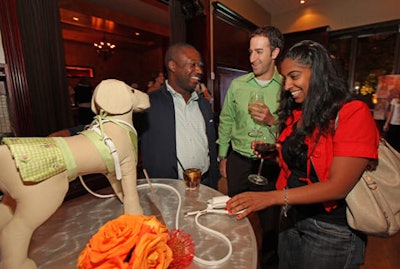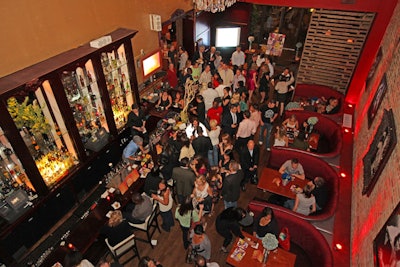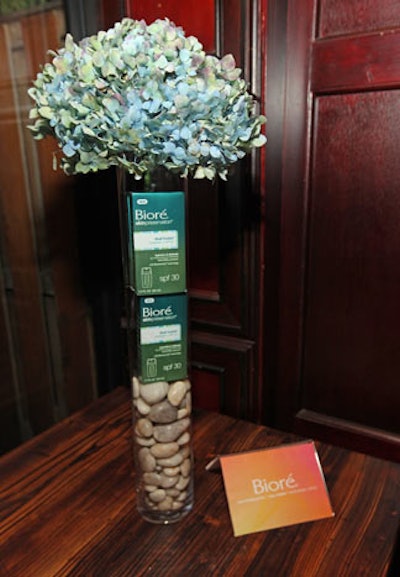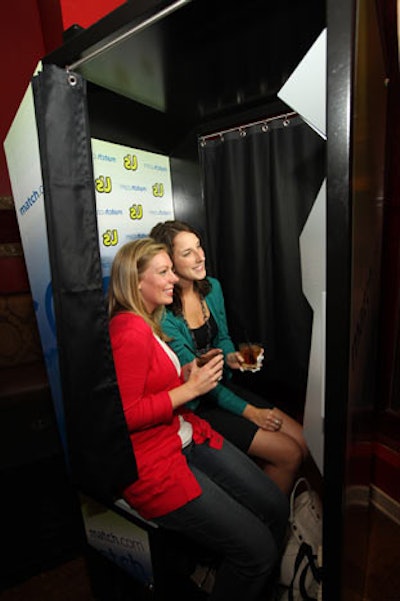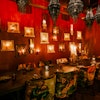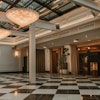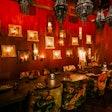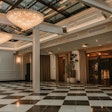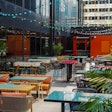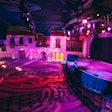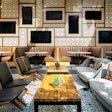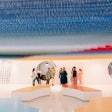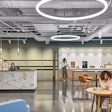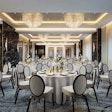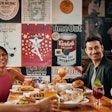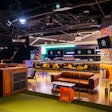On Thursday night, Us Weekly occupied the Red Canary for a cocktail bash filled with brand activations that ranged from highboys topped with plush dogs—a nod to event sponsor Cesar Canine Cuisine—to specialty drinks mixed with Diet Coke to a photo booth that spat out strips emblazoned with the Match.com logo.
Dubbed "Hot Hollywood Summer in Chicago," the event marked the third in a series of happenings that also took place in Atlanta and Dallas. "The Hot Hollywood consumer events are the magazine's annual summer series, and they're something we've been doing for about five years now," said Keira Ford, Us Weekly's New York-based senior integrated marketing manager, who assisted integrated marketing manager Brenda Cacciola with planning efforts.
The event, which Ford described as "fairly turnkey," follows a similar format each year. "We go to three key markets for our advertisers, and we try to partner with the newest hot-spots in each city," said Ford. (At just a month old, the Red Canary fit planners' must-be-new criterium.) Once they reach the venue, "we try to give attendees a taste of what it's like to attend Us Weekly's Hot Hollywood event," a celebrity happening that takes place in Los Angeles twice annually, Ford said. To infuse the Chicago cocktail bash with a Hollywood vibe, Cacciola and Ford arranged for a red carpet to line the entrance into the Red Canary; inside, guests mugged in front of a step-and-repeat, posing for photos that posted to the magazine's Facebook page the following day.
The step-and-repeat bore logos for brands such as Playtex, and more activations appeared throughout the lounge. Framing the bar, flat-screen TVs ran a logo reel, and tables held chilled buckets of Bud Light Lime and stacks of Us Weekly magazines. Reps for Biore skin care conducted a beauty poll that let guests text their answers to an oversize projection screen that updated continuously. "Our marketing team here comes up with the integration ideas, but we work very closely with our advertisers to make sure that we're on brand," Ford said. "We want to come up with something that will make sense not only for the advertiser, but that will be fun, make an impact within the party, and stay true to the Us Weekly brand."
Ford said the event's target audience was Us Weekly readers, with a particular focus on women between the ages of 21 and 34. Approximately 300 attendees passed through Thursday's event, and Ford said that most of them learned of the happening through emails sent to the magazine's database.
